On March 4, 2023, as one of the global events of UNESCO World Engineering Day for Sustainable Development, Engineering and Engineering Education-Monograph of Chinese Academy of Engineering (CAE) Member ZHU Gaofeng and ICEE Book Series Publication Symposium took place at Tsinghua University. The symposium focused on the theme of the new book series of Engineering and Engineering Education by CAE member ZHU Gaofeng, SUN Yongfu, Chinese Academy of Sciences (CAS) member GU Binglin, Prof. YU Shouwen, and ICEE. The symposium was organized by the Education Committee of the CAE, the International Centre for Engineering Education under the auspices of UNESCO (ICEE), and Shanghai University of Engineering Science, and co-organized by the Institute of Education (IOE), Tsinghua University, Higher Education Press, and Tsinghua University Press.
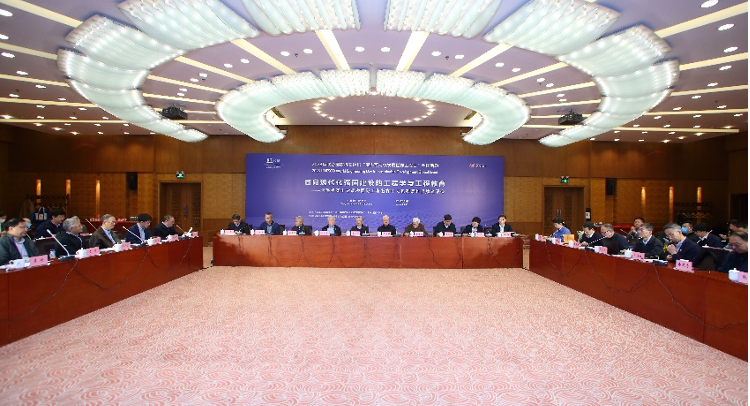
At the symposium site
GU Binglin, former President of Tsinghua University, a member of CAS, Vice Chairperson of the ICEE Advisory Board, ZHU Gaofeng, a member of CAE, former Vice President of CAE, Vice Chairperson of the ICEE Advisory Board, SUN Yongfu, a member of CAE, former Vice Minister of Standing Council of the Ministry of Railways of the People's Republic of China, Prof. YU Shouwen, former Vice President of Tsinghua University, a member of the ICEE Advisory Board, Prof. WANG Yuming, a member of CAE and a professor of the School of Mechanical Engineering, Tsinghua University, Prof. TU Shandong, a member of CAE, former Vice President of East China University of Science and Technology, WANG Zhenhai, Director of Bureau II of CAE, QU Zhenyuan, former President of China Association of Higher Education and a member of the ICEE Advisory Board, WANG Shuguo, Vice Chairman of Chinese Society of Engineers (CSE), Chair of the Board of Directors of China Engineering Education Accreditation Association (CEEAA) , a member of ICEE Governing Board, President of Xi’an Jiaotong University, LUO Hui, Director of the Department of International Affairs of China Association for Science and Technology (CAST ), Vice Chairman of CSE, Joint Secretary-General of CSE Secretariat, CHEN Yiyi, former Executive Vice president of Tongji University, LI Jiang, a professor from Shanghai University of Engineering Science, HOU Yongfeng, Researcher of Science and Technology Department of Ministry of Education, China, YE Min, Director of the Academic Council of Institute of China's Science, Technology and Education Policy (ICSTEP), attended the symposium. Prof. WANG Sunyu, a professor of IOE, Tsinghua University, Deputy Executive Director and Secretary General of ICEE, presided over the meeting, Prof. WU Qidi, former Vice Minister of MOE, China, made the concluding remarks.
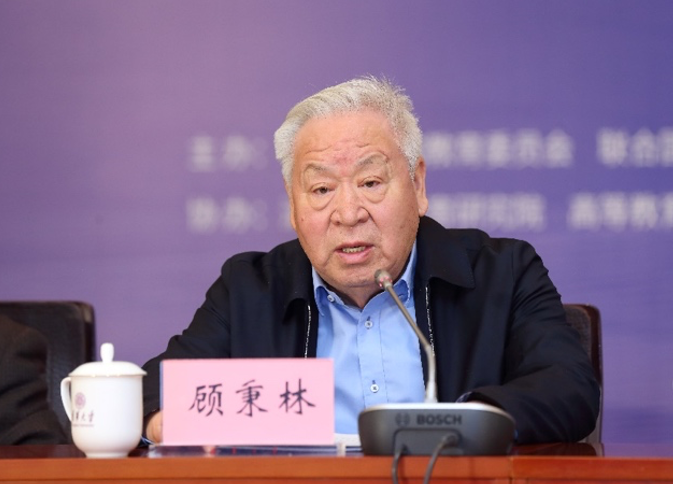
Invited speaker GU Binglin
CAS member GU Binglin firstly expressed his sincere congratulations to CAE member ZHU Gaofeng and SUN Yongfu as well as Prof. YU Shouwen on the publication of their monographs and ICEE works. He pointed out that He pointed out that these works comprehensively reflected the in-depth observations and thoughts on engineering education made by CAE member ZHU Gaofeng and other scholars over a long period of time. Besides, after looking back on Tsinghua University’s historical tradition in valuing engineering education and its groundbreaking contributions to practical exploration and theoretical research in this respect, he expressed his expectation of conducting research on such important issues as how to strengthen the cultivation of engineering practical ability and develop an interdisciplinary engineering education model.
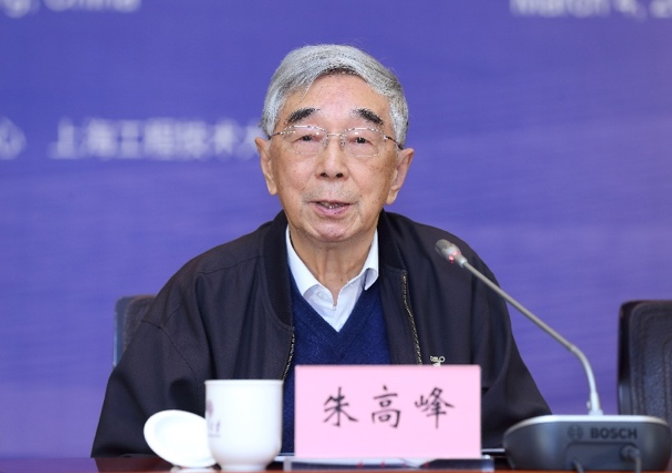
Invited speaker ZHU Gaofeng
At the very beginning, CAE member ZHU Gaofeng expressed his heartfelt gratitude for this symposium. According to him, studies on engineering and engineering education were relatively inadequate, and the combination of theoretical research and engineering practice was insufficient. Against such background, monographs provided some basic points. To be more specific, these monographs touched on the basic concepts, elements and values of engineering, as well as characteristics and trends of engineering education, and put forward new ideas and methods for the reform and innovation of engineering education, talent cultivation, and building of teaching staff, etc.
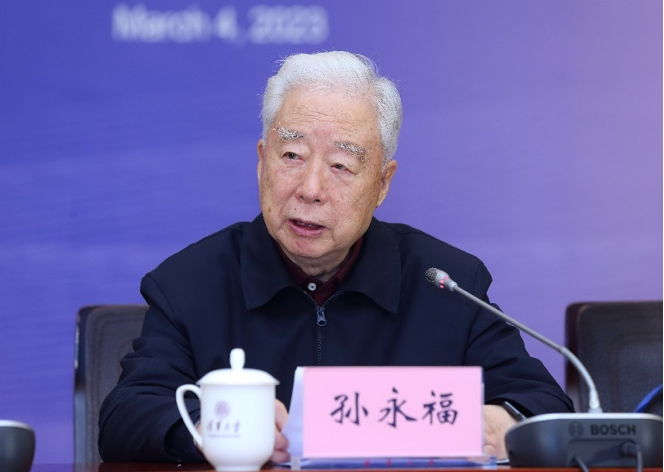
Invited speaker SUN Yongfu
CAE member SUN Yongfu said that engineering and engineers played a decisive role in realizing sustainable development goals of the United Nations, and that in-depth theoretical guidance was required to develop engineering and engineering education. In this context, the publication of monographs by CAE member ZHU Gaofeng and CAS member GU Binglin, Prof. YU Shouwen and ICEE book series was most opportune and of great significance to the theoretical research and the practice of engineering education. In addition, he expressed valuable opinions on the cultivation of innovative engineering talents and the development of innovative engineering education models, and pointed out that it was necessary to strengthen the cultivation of internationalized competences of engineering professionals based on the practical needs of the construction of the Belt and Road.
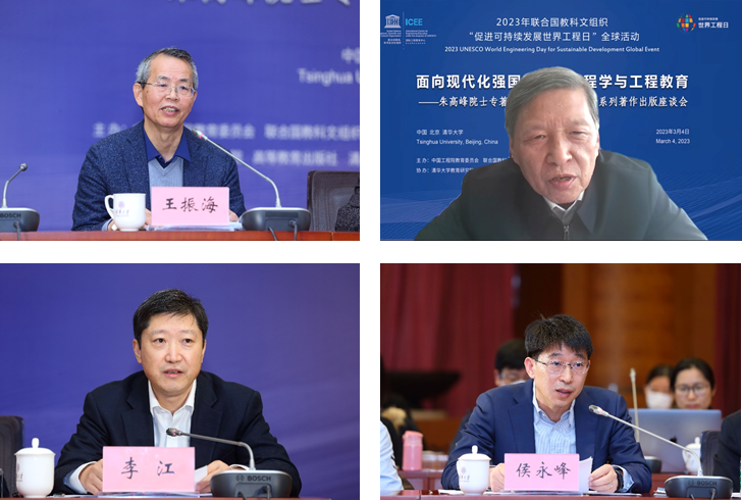
Guest speakers
WANG Zhenhai, WANG Shuguo, LI Jiang, HOU Yongfeng (from left to right, top to bottom)
WANG Zhenhai, on behalf of the Education Committee of CAE, congratulated on the publication of CAE member ZHU Gaofeng’s monograph and ICEE book series, which reflected the progress secured in research on engineering education and had important guiding significance for Chinese engineering education reform. The Committee would continue supporting engineering education research to make new, greater contributions.
WANG Shuguo said that as a person with an engineering background, he was deeply moved by the dedication of those predecessors to the research on major issues in engineering education over the years. He emphasized that the stranglehold problems were mostly about engineering, and called on the industry to work together to promote the development of engineering education in China and even the world.
From the perspective of a local application-oriented university, LI Jiang shared the progress and thoughts of Shanghai University of Engineering Science in carrying out engineering education accreditation, international exchanges, and enterprise-college cooperation, etc.
HOU Yongfeng indicated the future work direction of the Department of Higher Education to promote new engineering disciplines construction from four aspects, i.e. to adjust talents cultivation objectives to satisfy the needs of more complex, intelligent engineering practices; to strengthen the cultivation of talents in areas with urgent needs and in short supply; to guide colleges and universities to take the initiative to meet the major strategic needs of the country; and to promote the information-based reform of talents cultivation mode.
The symposium also held a ceremony of book donation to Tsinghua University Library. ZHU Gaofeng, SUN Yongfu, GU Binglin and YU Shouwen donated their books to the Library. JIN Jianbin, the Director of the Library, accepted the books on behalf of the Library, and presented the authors with donation certificates of the Library.

Book donation ceremony
ZHU Gaofeng, SUN Yongfu, GU Binglin and YU Shouwen donated books to JIN Jianbin of Tsinghua University Library respectively. (from left to right, top to bottom)
Many experts and scholars participated in the academic discussions online and offline, and expressed their views on many issues, such as the cultivation of engineering professionals, the development of engineering pedagogy, the training mode of interdisciplinary talents, and the development of international engineering education. The participants included YU Shouwen, former Vice President of Tsinghua University and a member of the ICEE Advisory Board, WANG Yuming, CAE member and a professor of the School of Mechanical Engineering, Tsinghua University, TU Shandong, CAE member and former Vice President of East China University of Science and Technology, QU Zhenyuan, former President of China Association of Higher Education and a member of the ICEE Advisory Board, YE Min, Director of the Academic Council of the Institute of China’s Science, Technology and Education Policy, Zhejiang University, ZHU Gaofeng, CAE member and former Vice President of CAE and Vice Chairperson of the ICEE Advisory Board, LIU Qian, Deputy Director and Associate Senior Editor of the Engineering Department, Higher Education Press, CHEN Yiyi, former Executive Vice President of Tongji University, SHI Lei, Deputy Editor-in-Chief of Tsinghua University Press and Director of the Academic Publishing Center and the Journal Center, JIANG Jiale, a professor of Huazhong University of Science and Technology and former Executive Deputy Editor of Research in Higher Education of Engineering, LIN Jian, a professor of the Institute of Education, Tsinghua University and Director of the Engineering Pedagogy Discipline Construction Alliance of Higher Education Institutions in China, and Prof. LEI Qing, Vice President of the Institute of Higher Education, Beihang University, etc.
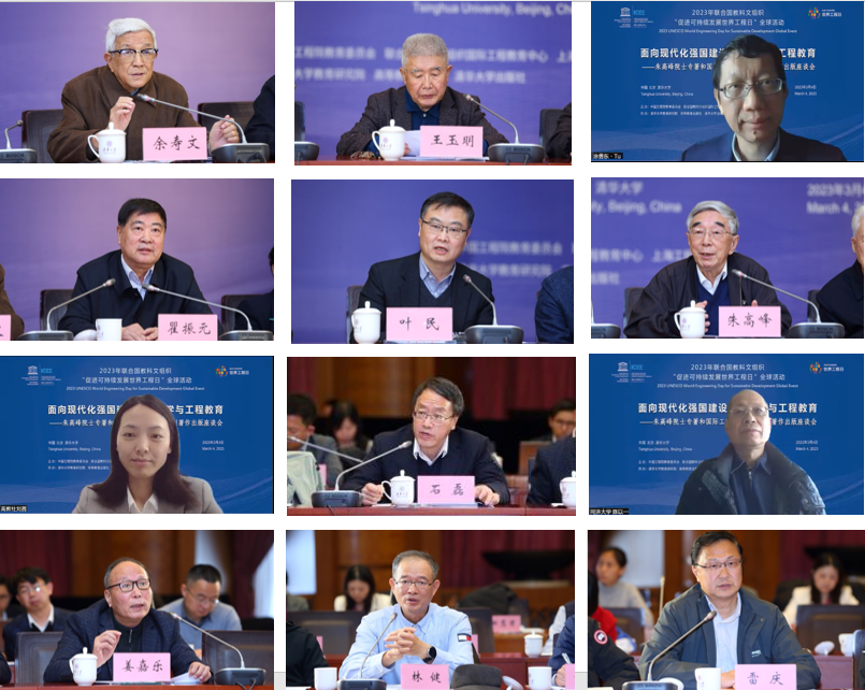
Academic discussions
YU Shouwen, WANG Yuming, TU Shandong, QU Zhenyuan, YE Min, ZHU Gaofeng, LIU Qian, SHI Lei, CHEN Yiyi, JIANG Jiale, LIN Jian, LEI Qing (from left to right, top to bottom)
YU Shouwen said that as the world was getting through a wider context of the once-in-a-century changes, we should keep up with the trend of technological development and incorporate new technologies into engineering curriculum, such as artificial intelligence and data mining. WANG Yuming emphasized that it was necessary to cultivate outstanding engineering talents with humanistic quality, artistic accomplishment, innovation and entrepreneurship, and improve our ability to foster high-level engineering, scientific and technological talents through our own efforts. TU Shandong pointed out that engineering education has reached a point where innovation is indispensable, and introduced the teaching reforms made in stimulating students’ innovative and entrepreneurial thinking and promoting the integration of knowledge structures. QU Zhenyuan stressed that we should follow the law of education, have a longer-term view of talents cultivation, and pay attention to continuing engineering education. YE Min proposed that we should consider the mechanism, mode, structure and layout of engineering education reform in China at a macro strategic level so as to better serve the practice of engineering education. ZHU Gaofeng underlined severe challenges facing engineering education due to a declining birthrate and called on people to conduct comprehensive studies on education, population and occupation. Besides, he suggested that the current reform should not be “all addition but no subtraction”, and called for “addition must be followed by subtraction”. From the perspective of the Engineering Department, Higher Education Press, LIU Qian shared her own thoughts about and the history of cooperation with CAE and other important institutions in engineering education. SHI Lei, from the perspective of Tsinghua University Press, shared the history of publishing books on engineering and engineering education in cooperating with ICEE over the years and the direction of and expectations for further cooperation. From the perspective of educational practice, CHEN Yiyi called for more achievements in promoting cooperation between enterprises and colleges. JIANG Jiale proposed to improve the humanistic quality of engineering talents and make the curriculum design more systematic and comprehensive. LIN Jian stressed the need for more research on the setting of disciplines and specialties, as well as curriculum informatization and intelligentization. LEI Qing indicated that researchers engaged in engineering education should strengthen their connection with engineering practice and interaction with engineering teachers at the production line.
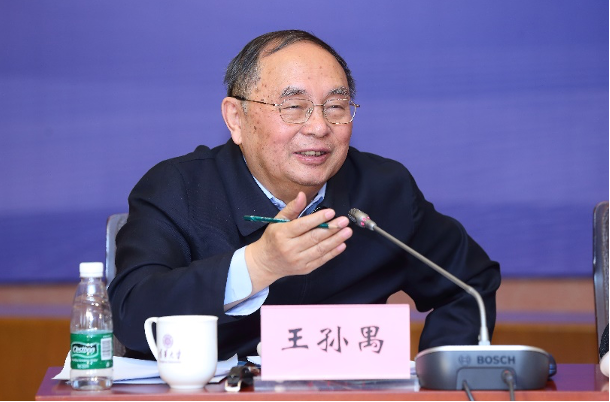
WANG Sunyu presided over the symposium
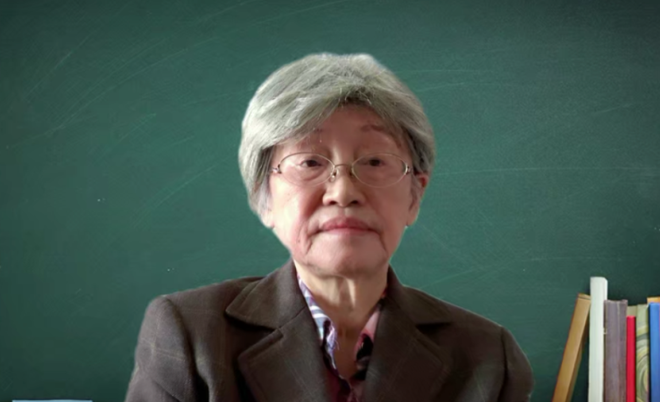
WU Qidi made the concluding remark
WU Qidi made the concluding remark at the end of the symposium. She said that we had in-depth exchanges and discussions on the current situation, challenges and future development of engineering and engineering education, which would play a positive role in the reform and innovation of Chinese engineering and engineering education. To realize the innovative development of engineering and engineering education, joint efforts of governments, colleges and enterprises were required. She also called on all participants to work together to make greater contributions to the rejuvenation of the Chinese nation and the construction of a strong country in engineering education!
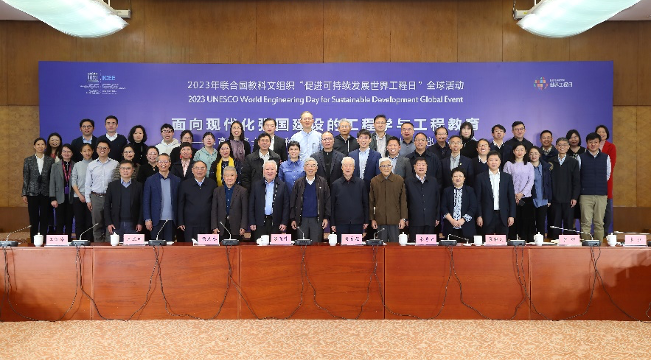
Group photo
Taking place both online and offline, the symposium attracted more than 100 experts and scholars from the Education Committee of CAE, the Department of Higher Education of Ministry of Education, CAST, CSE, CEEAA, Shanghai University of Engineering Science, Beihang University, Xi’an Jiaotong University, Tongji University, Zhejiang University, Huazhong University of Science and Technology, Tsinghua University, Higher Education Press, Tsinghua University Press and other institutions.
(Edited by: HE Shiyu; Reviewed by: WANG Sunyu, XU Lihui)